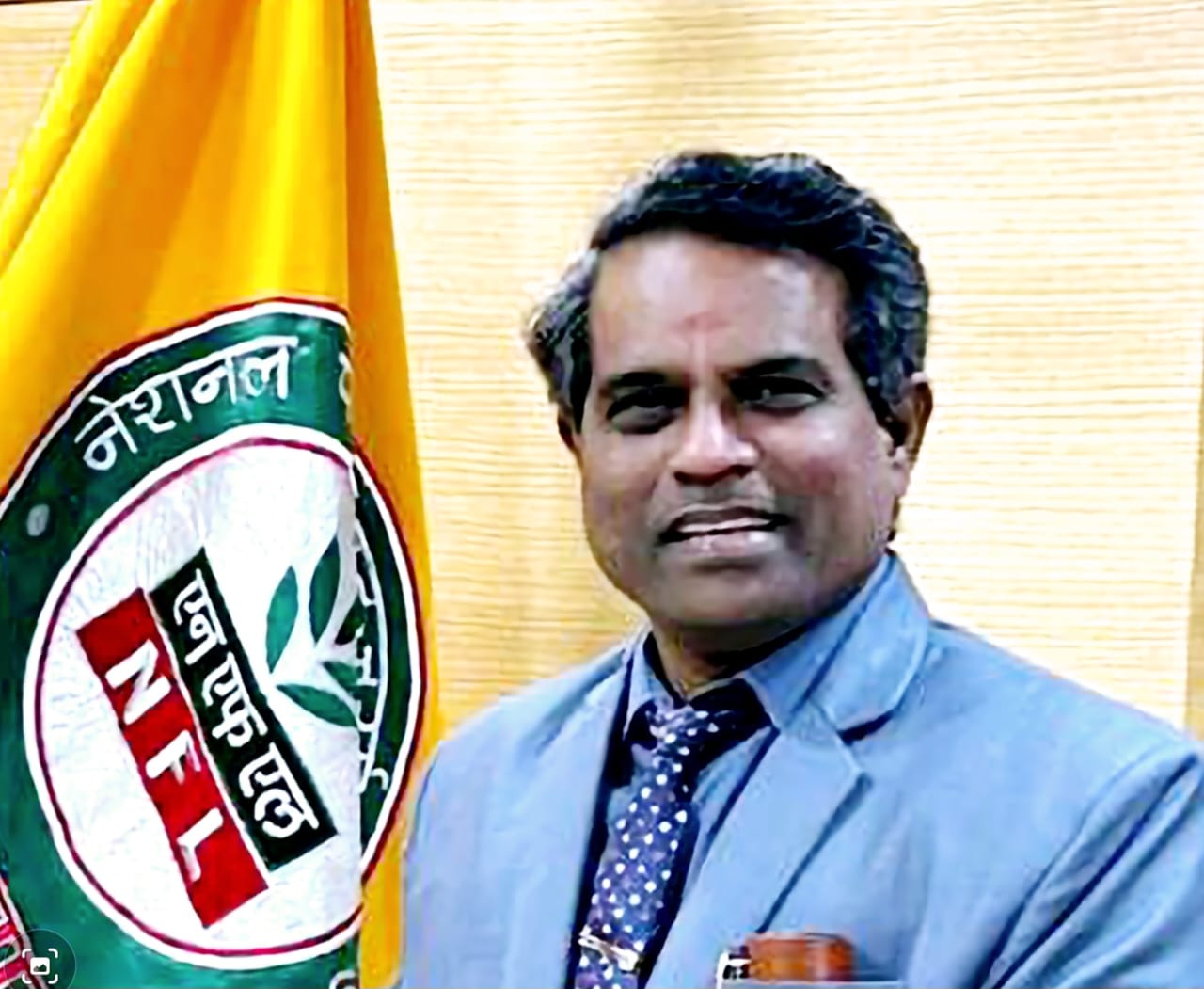Beneficial ownership – a tool to foster transparency in the Corporates: Pranay Chaturvedi, ROC, NCT of Delhi & Haryana
Author: Pragya Lal & Sshivam Jha

New Delhi: In the dynamic landscape of corporate governance in India, the Registrar of Companies (ROC) oversees the registration and compliance of companies and Limited Liability Partnerships (LLPs). In an exclusive conversation with Editor-in-Chief Dr Navneet Anand, Pranay Chaturvedi, an officer of the prestigious Indian Corporate Law Services (ICLS) and currently serving as ROC of NCT of Delhi & Haryana, sheds light on the transformative journey of ROC from physical registry processes to the digital era and the significant responsibilities it shoulders post the Companies Act of 2013.
Chaturvedi reminisces about the pre-2006 era when the registry process was entirely physical. However, since the transition to online registration in 2006, ROC has experienced a paradigm shift, enabling a focus on quality work. The digital transformation has not only streamlined processes but has also led to a surge in inquiries, inspections, and investigations. For a country the size of India and number of companies - a modest cadre of only 293 officers handle the task of corporate governance and a host of related activities, and that is commendable. Chaturvedi alone along with his team, for instance, handles 3.45 lakh registered companies in Delhi and Haryana.
Chaturvedi feels the ICLS has an enormous opportunity to serve the country, and take it to greater heights. "Through the powers vested in us, we can accomplish much more in the interest of the public,” he says.
Under the aegis of the Ministry of Corporate Affairs (MCA), ROC plays a crucial role in certifying the existence of companies through incorporation certificates. Section 609 of the Companies Act, 1956, and subsequently section 396 of the Companies Act, 2013, entrust ROCs with the responsibility of registering companies and LLPs across states and union territories. Chaturvedi highlights the expanded role of ROC post the Companies Act of 2013, particularly in facilitating Fast Track Mergers and decriminalizing minor violations, empowering ROCs as executing officers, “Previously, mergers were solely conducted in the High Court, a power which is now bestowed upon the National Company Law Tribunal. However, now Fast Track Mergers involving small companies, startups or mergers between holding companies and their wholly-owned subsidiaries are sanctioned by the Regional Directors, based on the observations raised by the respective Registrars and the Official Liquidators. All three offices are manned by ICLS officers.”
While taking pride in the work that he does, and relishing the transformation turnaround of the agency with fast-paced modernisation, Chaturvedi has developed a knack for efficiency and also comprehending the complex nature of corporate crimes. He especially highlights the challenges in unearthing beneficial ownership of companies, a concept which is not widely known, but has been growing in importance as a mechanism to foster transparency in ownership of corporates.
The issue of beneficial ownership assumes significance in view of the emerging business landscapes and global surge in business transactions. It becomes critical for countries to create safeguards to ensure that their territories are not used as havens for dubious transactions and mischief.
Expressing his deep concerns about new forms of crime, Chaturvedi sounds stern in his determination to ensure that the law of the land catches up with these mischief-makers. Chaturvedi, in fact, is credited with an incredibly fascinating investigation into a case of beneficial ownership, and which would alarm all those actors looking at bypassing and hoodwinking Indian laws to make pecuniary gains.
The January 8, 2024, 38-page order of penalty from ROC of NCT of Delhi and Haryana in case of Metec Electronics Private Limited for violation under sections 89 and 90 of the Companies Act 2013, signed by Chaturvedi, reads like a masterpiece of investigation work by Hercule Poirot!
Chaturvedi eyes glow when he explains the opaque ownership structures and how he and his team led a meticulous investigation that led to this expose, which exposed foreign control masked by Indian subsidiaries, leading to stringent penalties for non-compliance.
“The company, Metec Electronics, runs its factory in Noida, and it is registered in Delhi. They signed one Indian national as a Director, and two Chinese nationals as directors. When an overseas company establishes an entity in India, it typically becomes a subsidiary to conduct business in the country. To facilitate this, the foreign entity infuses shares in the Indian company through the FDI route, subject to sectoral regulations. However, with Metec, during adjudication proceedings, it became apparent that certain individuals were acting as dummy directors. Upon interrogation, it was revealed that these individuals were not knowledgeable about the company's operations. Further investigation uncovered that the company was controlled by four Chinese individuals residing in Noida, operating through an Indian subsidiary. Their company logo matched a registered entity in China. Through meticulous examination including scouring the Trademark department database of China, it was discovered that one of the employees was the beneficial owner. Consequently, a detailed order was issued, exposing the Chinese company's operations in India. Trading activities were halted until proper filings were made, and penalties were imposed for non-compliance. Trading in India was contingent upon disclosing all details of the beneficial owner,” asserts Chaturvedi.
The Delhi ROC, in fact, has initiated a series of actions to reveal beneficial ownership, while there are many investigations by ROCs of different states which are in their final stages involving some big companies. Even Indian listed companies are found to be in violations of certain laws and Chaturvedi is closely examining these cases.
Giving another example, Chaturvedi revealed another phenomenon involving crowdfunding platforms. These platforms entice retail investors into investing into the shares and other securities of start-ups. They typically have a ticket-size as low as Rs. 5000, so as to target as many people as possible. However, this practice violates the Companies Act, which prohibits the promotion of private placement. “As a private limited company, they cannot issue an IPO. A private placement is made to identified persons not exceeding 200 in a financial year. For doing that, the companies cannot use online platforms to make offers/invitation to offers to the public at large. I issued two orders against the companies who had used one such platform a year ago.”
Chaturvedi emphasises the international dimension of beneficial ownership, noting its relevance in combating terrorism and money laundering. He recounts his involvement in briefing the Financial Action Task Force (FATF) team on India's laws and regulations concerning beneficial ownership, highlighting the global effort to address corporate malfeasance.
The implementation of the Benami Act and sections 89 and 90 of the Companies Act empowers ROC to delve deeper into identifying actual controllers of companies, transcending mere shareholding scrutiny. Chaturvedi elucidates on the significance of Significant Beneficial Ownership (SBO) concept and the growing imperative of transparency in corporate structures, especially in light of international legislative developments such as the Corporate Transparency Act in the United States. “America's recent passage of the Corporate Transparency Act is notable, as federal laws are uncommon, with states typically responsible for legislation,” he added.
Despite the strides made, Chaturvedi acknowledges the resource constraints faced by ROC, advocating for comprehensive plans to address these challenges. He points to the exponential growth in company incorporations, highlighting the role of ROC in facilitating India's economic formalization and entrepreneurial ventures.
“If you visit the ministry's website this March, you'll find that company incorporations have hit an all-time high, with a record number registered by February 15th, surpassing the past decade's figures. Previously, if 80,000 companies were incorporated annually, now it's 160,000—an exponential growth that's expected to continue. As the economy formalizes, public sector jobs decrease, leading to a shift towards the private sector and entrepreneurial ventures. The service sector plays a crucial role due to the rapid growth of entities, expected to quadruple soon,” said Chaturvedi. Needless to mention, the ROC needs to keep pace with the changes.
An ardent advocate of the yeoman services being rendered by ICLS, recruitment for which is done through the Union Public Services Commission Civil Services Examination, Chaturvedi who belongs to the first batch of ICLS officers says he is proud to see the bright talents that are opting for this service. "Once into it, we realize the enormity of the opportunity we have as officers to contribute to the making of a vibrant, new, robust and developed India,” Chaturvedi says.
Chaturvedi reiterates ROC's commitment to public interest. As India embraces global standards of corporate governance, ROC's role as a guardian of transparency and accountability becomes increasingly indispensable.



